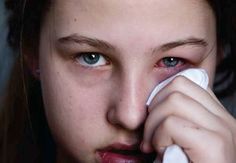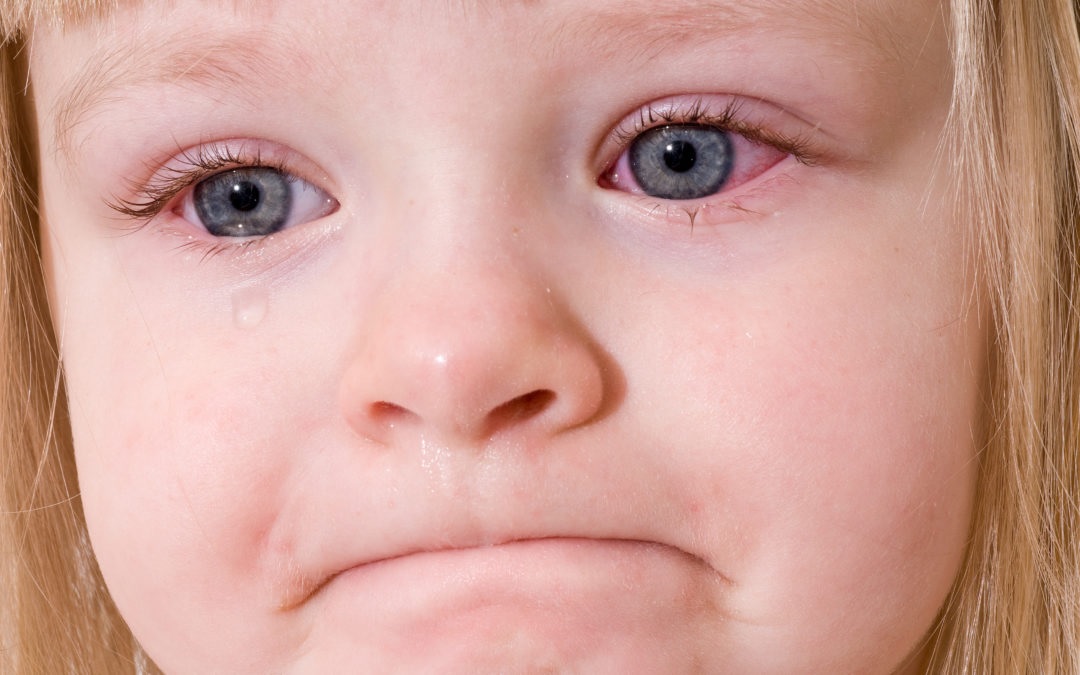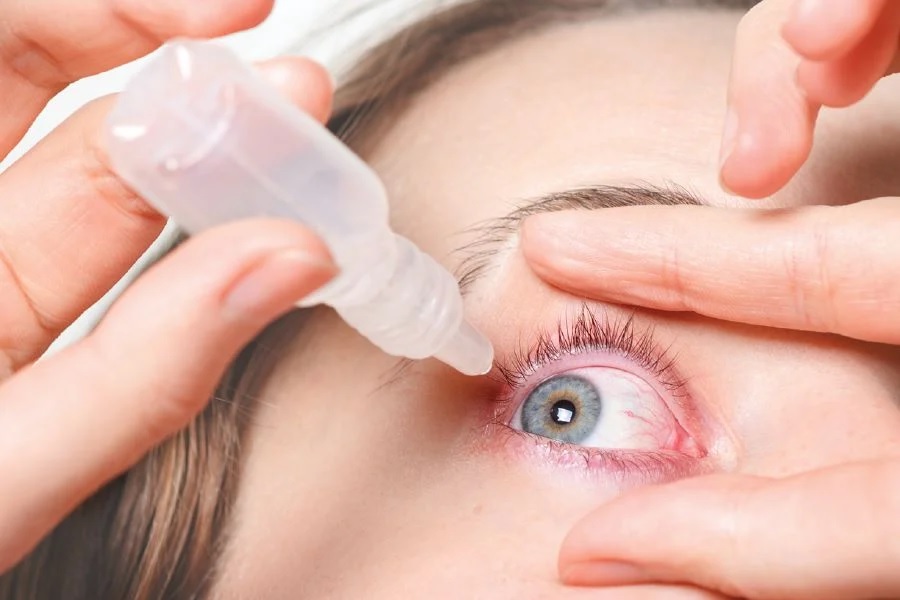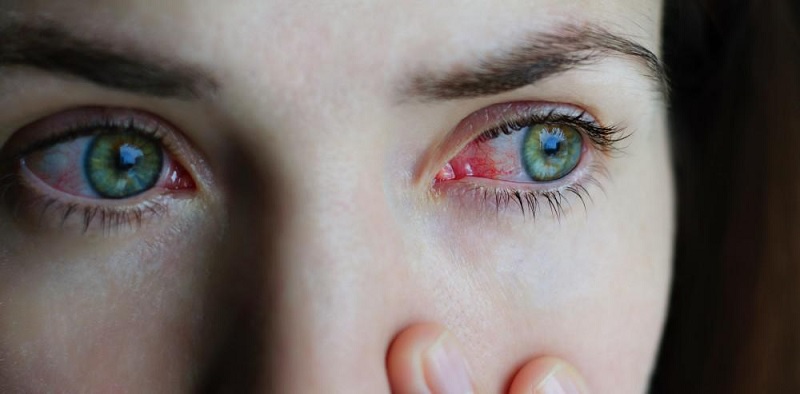Healthbeauty123.com – When a person develops Allergic Conjunctivitis, watery or stringy mucus may be discharged from the eye. This discharge may be accompanied by sneezing or nasal symptoms. Allergic conjunctivitis is diagnosed based on the history and physical exam findings of the patient. Specific blood tests may be required to identify a particular allergen. Anti-allergy eye drops and oral medications are available over-the-counter.
Causes of Allergic Conjunctivitis Symptoms
People with allergic conjunctivitis can experience symptoms year-round or seasonally. In seasonal cases, eye inflammation is triggered by pollen or other allergens found in the air. Allergic Conjunctivitis is also possible in people who are sensitive to household allergens, such as pets or dust. Some people also experience allergic conjunctivitis due to exposure to chemicals or medications or accidentally dropping substances into the eye.
Allergic Conjunctivitis is an inflammation of the eye’s conjunctiva. Inflammation can cause burning and itching, as well as excessive watering. Allergic Conjunctivitis can also cause a stringy discharge. Some people have symptoms all year round, while others experience a reoccurring flare-up every few months. To learn more about Allergic Conjunctivitis, read on to learn more about treatment options.

Symptoms of Allergic Conjunctivitis vary depending on the type of allergen. Allergic Conjunctivitis is characterized by red and teary eyes. While symptoms of the condition may vary from person to person, the main treatment is to avoid the allergen, avoiding contact with allergens is essential. Moreover, it is important to take proper precautions and follow instructions to avoid the allergen in your home.
Signs of Allergic Conjunctivitis
Aside from eye discharge, Allergic Conjunctivitis can also cause eyelid edema and other symptoms. Patients with Allergic Conjunctivitis should seek medical attention if they experience any of the above symptoms. Allergies to weed out common allergens and avoid irritating substances. The symptoms of Allergic Conjunctivitis can also be a sign of more serious eye conditions such as glaucoma.
The main treatment for Allergic Conjunctivitis is to avoid the allergen. In general, you can avoid the allergens by wearing sunglasses and closing the windows when outside. Certain medications and makeup can aggravate symptoms. Additionally, you can also apply a cold compress to the affected eye. A cool compress can relieve the symptoms, but avoiding the allergen is best. For more severe cases, you can also use eye drops and lubricant sprays.

Preventive treatment for allergic conjunctivitis includes oral antihistamines. While these medications can help prevent symptoms, the greatest effect may not be seen for days. Nonsedating oral antihistamines include fexofenadine (Allegra), loratadine (Claritin), and cetirizine. These are widely available without a prescription and can be purchased in many pharmacies. Preservative-free eye drops are best taken at bedtime.
The Best Treatment of Allergic Conjunctivitis
Allergy-induced Allergic Conjunctivitis can be difficult to treat. In the worst cases, you may need to take antibiotics. In general, symptoms will improve when you reduce the exposure to the allergen or start using medication. The symptoms will likely improve with treatment, and your eyesight will improve. When your symptoms begin to improve, you can try wearing sunglasses or contacts to relieve discomfort. If you still don’t see any improvement, you may need to change your medication or try an alternative treatment.
Simple Allergic Conjunctivitis occurs after contact with an allergen on the ocular surface. The exact etiology of this condition is not known, but a combination of climate and allergen is believed to be responsible. Giant papillary Conjunctivitis may develop after eye surgery. Lastly, poor hygiene can also contribute to the development of eye infections. A doctor should prescribe appropriate allergy medications based on the severity of symptoms and the specific cause.

There are several different types of allergic conjunctivitis. Vernal Keratoconjunctivitis (VKC) is the most common form. There is no known stimulant that causes VKC. In most cases, this type of Allergic Conjunctivitis subsides without recurrence. In severe cases, it can cause corneal neovascularization, ulceration, and keratoconus.
Reference:
Ciprandi, Giorgio, et al. “Drug treatment of allergic conjunctivitis.” Drugs 43.2 (1992): 154-176.






